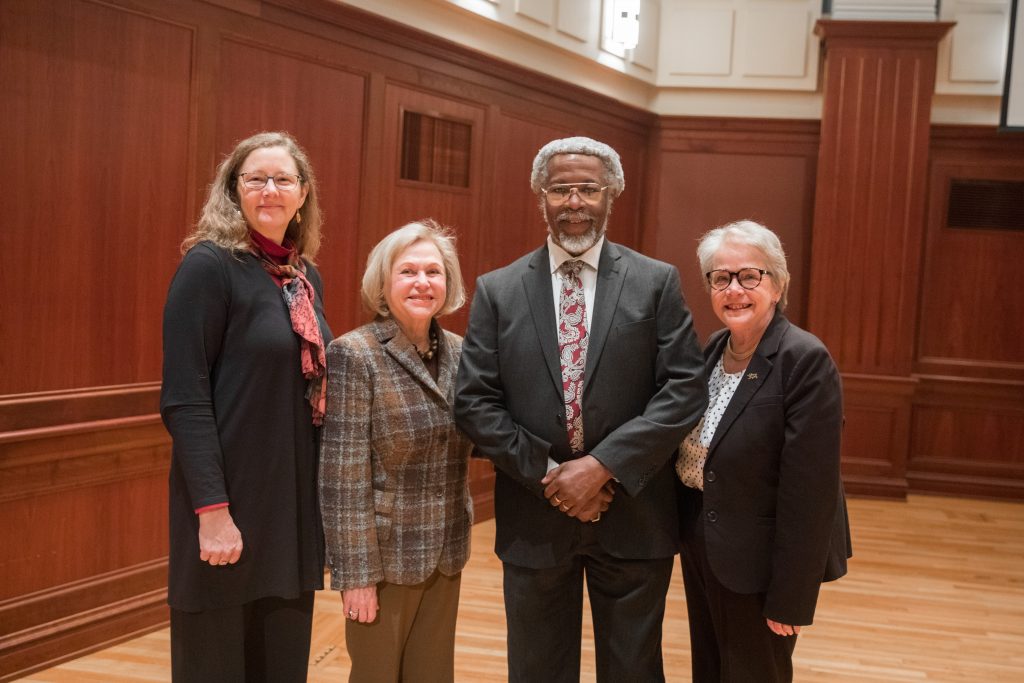
“What unique perspective does a minority student bring to a physics class?” was the question Chief Justice John Roberts asked in the 2015 Supreme Court case A. Fisher v. the University of Texas.
Aiming to provide a response to that question, Dr. Sylvester James Gates—a nationally recognized voice on the importance of equity and diversity in education—spoke to a packed Mayo Concert Hall at this year’s Barbara Meyers Pelson ’59 Lecture in Faculty-Student Engagement, where he offered perspectives from his 45 years of teaching theoretical physics to diverse classrooms of college students.
“All of us have a favorite form of music, but they’re different,” said Gates, Distinguished University Professor, University System of Maryland Regents Professor, and John S. Toll Professor of Physics at the University of Maryland. “You are no poorer because they’re different. In fact, your life is enriched. This is a simple example of diversity.”
It’s the bigger set of choices that enriches the experience, he explained. Without different styles of music to commingle, the possibility for rock n’ roll, ragtime, jazz, rap, and other styles wouldn’t have existed.
From musical amalgamations to the genetic diversity that allows for the adaptation and survival of plants and animals, Gates asserts that “diversity is the handmaiden for innovation.” And that holds true in the classroom.
Gates recounted his observations watching majority and minority students in his theoretical physics classroom trying to solve problems. The outcomes were most efficient when they collaborated because students experience multiple ways of thinking about a problem, he said.
“The broadest population of students in a classroom means you get the broadest set of approaches in solving problems,” he said. “Just because a person doesn’t look like you, doesn’t share your identity or gender, doesn’t mean they can’t bring something valuable to your education.”
—Emily W. Dodd ’03
